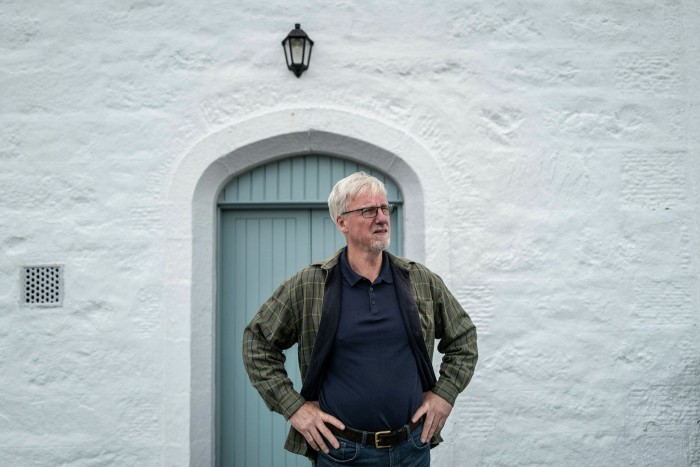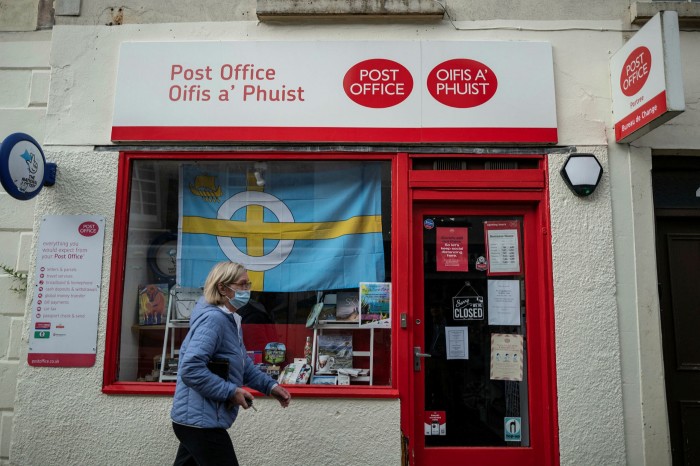When John Finlayson was growing up, almost everyone in his community on the Isle of Skye was fluent in Gaelic. Now, despite decades of official support for what was once the dominant language of most of the Scottish Highlands and Islands, Finlayson can only think of a single neighbour to the family croft on the island who speaks it.
“We’ve been trying to make Gaelic sustainable for many years. So why is it we are failing? That’s the big question,” said Finlayson, 63, a former headteacher who chairs the Highland local council’s education committee.
It is a question of increasing political urgency amid signs that Gaelic’s long linguistic retreat has become a rout.
A study of areas where Gaelic is relatively strong published last year found that the ancient Celtic tongue could “soon cease to exist as a community language in any part of Scotland”.
“The remaining vernacular networks will not survive anywhere to any appreciable extent, under current circumstances, beyond this decade,” said the study, led by Conchúr Ó Giollagáin, Gaelic research professor at the University of the Highlands and Islands (UHI).

The Scottish National party government is now considering emulating Ireland — where Scottish Gaelic’s linguistic sibling Irish is also under pressure — by grouping areas where the language is relatively strong into a “Gàidhealtachd”, a region that would be given special treatment to support the language.
There is cross-party support for Gaelic, which in the 11th century was spoken across Scotland before being eclipsed by the Scots language and later English.
Scotland’s 2011 census found just over 1 per cent of people could speak Gaelic.
On Skye, a historic centre of Gaelic culture, the challenges and complexities of arresting the language’s decline are clear.

Young people who have learnt the language at home or through the Gaelic medium school system struggle to find jobs or homes on the island, where houses are often snapped up by southerners eager to try island life.
Remote working allowed Katie Kroll, 30, to return to Skye after a decade away that sharply reduced her Gaelic proficiency. Now a lack of fluent local peers makes brushing it up harder.
“I have a lot of friends of my age who are Gaelic speakers that would love to come back to their communities, but they can’t because there’s not much work apart from hospitality and there’s absolutely no accommodation,” Kroll said.

In Staffin on Skye’s jagged-ridged northern coast nearly half of residents reported some proficiency in Gaelic in 2011. But Aonghas Ros, founder member of the local community trust, a grassroots development charity, said maintaining its routine use was a huge challenge.
“English is all-powerful, all-pervading, totally dominating. Unless you are assertive, Gaelic simply gets pushed to one side,” Ros said.

Since Scots Gaelic speakers also speak English, increasing numbers of monolingual English speakers in a community have a dramatic impact on the language used in social situations.
When only Gaelic-speakers are on the Staffin trust’s board, meetings are conducted in Gaelic — but that changes if even one board member does not understand the language.
“You always tend to defer to the fact that someone is only an English speaker, a monoglot person, otherwise you would exclude that person,” Ros said.
Calum Munro, chair of the Gaelic committee on Highland council, said researchers’ forecast of vernacular collapse rang true.
“It’s getting late. We know the situation now, so I think morally we have to face up to that challenge and try to do something,” he said.
What to do is contested. The UHI study called for the creation of a new grassroots co-operative that would take some of the responsibilities and resources of Bòrd na Gàidhlig, the body responsible for promoting Gaelic.

But Wilson McLeod, professor of Celtic and Scottish studies at Edinburgh university, said the study was unfair in its condemnation of current policy and had failed to provide evidence for its proposals.
Much may depend on the judgment of Shirley-Anne Somerville, who as Scotland’s education secretary, is responsible for Gaelic policy.
Somerville has promised new legislation to support the language and a review of Bòrd na Gàidhlig. But the cabinet secretary has yet to detail how a Gaelic speakers’ Gàidhealtachd might work or say what other new policies could help save the language.
Officials have been holding discussions on the issue in preparation for a more formal consultation. “I go into this with a very open mind,” Somerville told the Financial Times in August.

While some anglophone Scots bristle at any extra spending for Gaelic, bold action will be needed to reverse its decline.
Mairi MacInnes, Bòrd na Gàidhlig chair, said rights to Gaelic education should be strengthened, almost all policies that affected island communities revised and much greater resources made available.
The UHI study was critical of the official attention put on teaching Gaelic as a second language — suggesting greater focus should be on supporting native speakers — but MacInnes hailed the growing number of people learning the language in Scotland’s cities.
“The use of the language is equally valuable, whether it is by someone who is learning it, someone who has learned it quite well, or someone who has just always had it,” MacInnes said.

Some Skye residents take comfort from the increasing use of Gaelic by younger native speakers and learners alike in daily life and on social media.
Anna Pelikan, 28, maintains a Gaelic Instagram page and runs a playgroup that introduces children to the language.
Pelikan blamed Gaelic’s decline on linguistic oppression and the infamous 18th and 19th-century clearance of Highland and Island populations for more profitable sheep.
But she believes enough young people now care about the language for it to revive. “I’m optimistic,” she said. “We are slowly going up the hill ourselves.”

Younger speakers are also often more willing to speak imperfect Gaelic than their shyer and more punctilious elders, an approach that raises the language’s profile and encourages others to use it.
“Even if your Gaelic is not perfect, it’s better to speak some,” said Raghnall Robertson, a 36-year-old Skye entrepreneur.
“Is fheàrr Gàidhlig bhriste na Gàidhlig sa chiste,” Robertson quoted a proverb as saying. “It’s better to have broken Gaelic than dead Gaelic.”
Stay connected with us on social media platform for instant update click here to join our Twitter, & Facebook
We are now on Telegram. Click here to join our channel (@TechiUpdate) and stay updated with the latest Technology headlines.
For all the latest Business News Click Here
For the latest news and updates, follow us on Google News.
